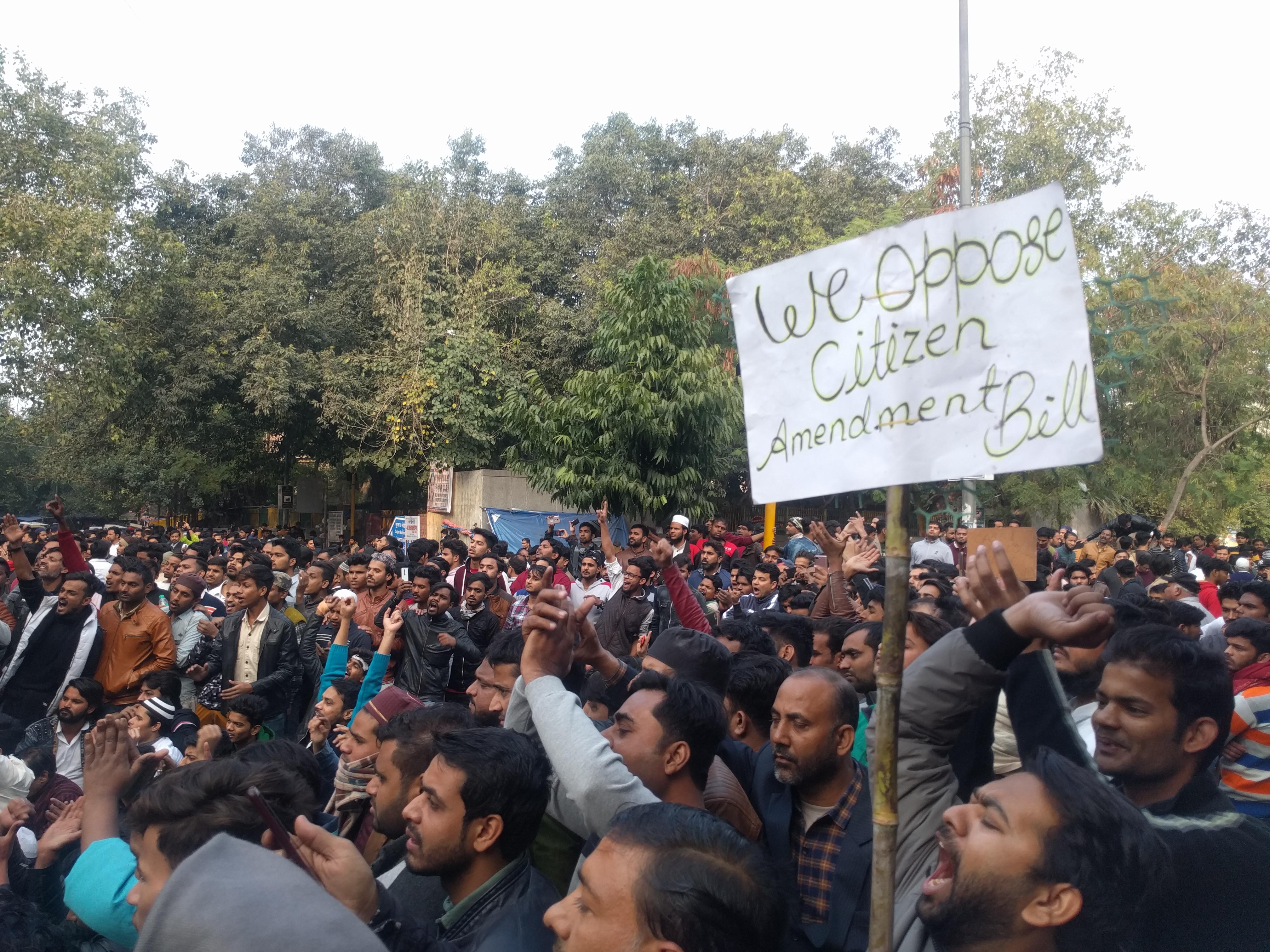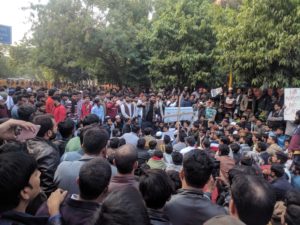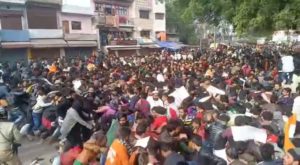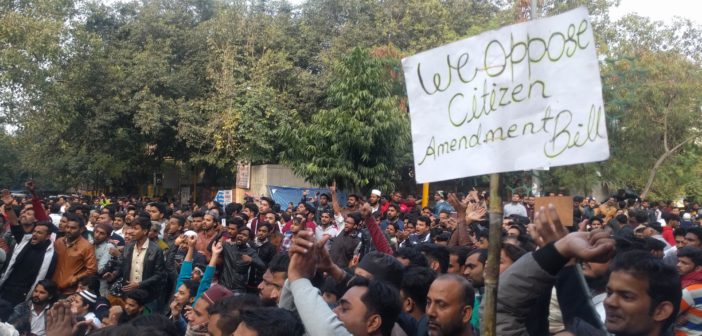
By Sarosh Bana, Mumbai Correspondent

JMI students and locals protesting against CAA NRC
As violence engulfs India, igniting from the north-eastern state of Assam as a nationwide backlash against a controversial law framed by the government, Prime Minister Narendra Modi tweeted: “I want to assure my brothers and sisters of Assam that they have nothing to worry after the passing of the Citizenship Amendment Bill. I want to assure them – no one can take away your rights, unique identity and beautiful culture. It will continue to flourish and grow.”
As security forces went on a rampage against the protesters, killing eight and maiming hundreds others, the Prime Minister’s words sounded very reassuring.
The problem was that Modi’s sentiments did not reach those caught in the melee, for his own government had shut down internet services across wide swaths of Assam and the rest of the country in an effort to cut off communications amongst the agitators.
His Hindu right-wing government’s enactment of the Citizenship (Amendment) Act (CAA) has flashed a political maelstrom across India. The Act confers citizenship on those from the Hindu, Christian, Sikh, Buddhist, Jain and Parsi communities who have come to India before 31 December 2014 to escape religious persecution in the Islamic countries of Pakistan, Bangladesh and Afghanistan.

Protests against CAA NRC
Questions have been raised as to why the legislation selectively questions the citizenship of Muslim refugees, by leaving out those Rohingyas who fled to India to escape pogroms against them in Buddhist Myanmar, as also the Ahmadis of Pakistan who are a Muslim sect, but have escaped persecution in their country that targets them as heretics.
Various groups have petitioned courts against the new legislation on grounds that it violates the Constitution of India, which in its very Preamble declares India a secular nation, and under Article 15 prohibits “discrimination on grounds of religion, race, caste, sex or place of birth”.
The Modi government has taken a series of measures of late that have been roundly opposed for being deeply divisive and discriminatory. These include the repeal of statehood of the Muslim-dominated border state of Jammu and Kashmir (J&K), and plans to build a grand temple where a 16th century mosque had been demolished by Hindu zealots.
The CAA itself was passed in the backdrop of a mammoth official exercise undertaken in Assam to determine the eligibility of the state’s citizens for inclusion in the National Register of Citizens (NCR). The process identified about 2 million persons as illegal settlers.
Home Minister Amit Shah, widely seen as the second most powerful man in India after the Prime Minister, now pledges to have this registration exercise undertaken across the country and has asked all states to create detention centres for holding those deemed unlawful migrants till the time they are deported. It is feared that the NRC will compel millions to prove their citizenship in a country where large numbers of the population of 1.3 billion, especially the poor and marginalised, possess no documentation, not even birth certificates. Officials issuing such papers often demand bribes that the poor cannot afford.
Indeed, the NCR is seen to be inconsistent in a country where even political leaders, with humble beginnings, have no such authentic identification. In the Prime Minister’s case as well, the educational institutions where he has claimed to have studied have attested to his claims while refusing to share his exam records. He has also claimed to specialise in what he calls “Entire Political Science”, but there is no record anywhere of such a subject. There are also no records to validate records of his childhood, and this controversy refuses to die down.
Even the government’s penchant to curb the internet runs counter to its own known raising of armies of internet trolls and spammers who intimidate political dissent on social media and sow incendiary posts with the intention to provoke and browbeat.
Overall, internet curbs have been imposed 95 times so far this year, leading the country to be branded “the internet shutdown capital of the world”. Internet services suspended in J&K on 4 August, on the eve of Home Minister Shah’s resolution in Parliament revoking the special Constitutional status accorded to the state, have not yet been fully restored as large parts of J&K remain under lockdown and its former leadership under house arrest. Shah has said the services will be restored only when the territory’s administration deems it appropriate.
“Instances of internet shutdowns in India, that is, state imposed blanket bans on access to internet services, either mobile or fixed line, are increasing at a worrisome pace,” notes New Delhi’s Software Freedom Law Centre (SFLC) that tracks incidents of such shutdowns across India. It adds that with the on-going disturbances showing little signs of abating, there was every chance the number of shutdowns could increase before the end of the year.
There is a growing perception that the successive measures the government is taking point to its determination to establish India as a Hindu Rashtra (Hindu Nation). A Union minister, Anant Kumar Hegde, had affirmed that his government would “amend the Constitution” to remove the word ‘secular’ from the Preamble.






